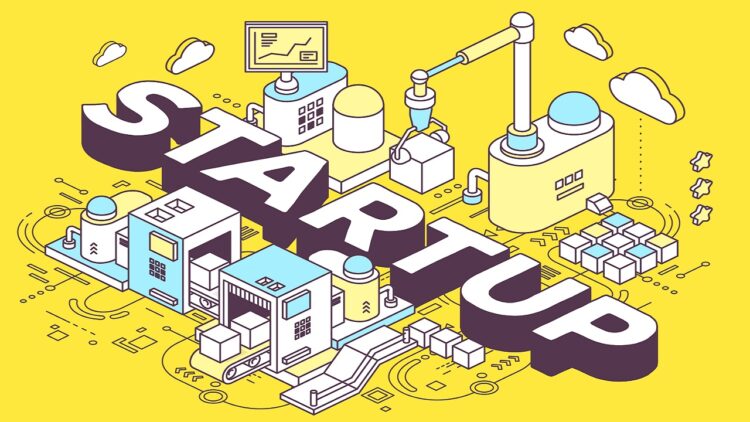In today’s rapidly evolving business landscape, startups are emerging as hubs of innovation, agility, and entrepreneurial spirit. As traditional career roles are redefined, a new wave of lucrative positions is taking center stage, fundamentally reshaping the startup ecosystem. This comprehensive article delves into the multifaceted world of startup careers, exploring emerging roles that promise high earning potential and significant impact. Through detailed insights into each position, we aim to provide entrepreneurs, professionals, and enthusiasts with a roadmap to navigate these opportunities and stay ahead in an increasingly competitive market.
The startup ecosystem is synonymous with rapid growth, continuous innovation, and the constant reimagining of business models. Over the past decade, technological advances and shifting consumer expectations have accelerated the evolution of roles within startups. Today, professionals not only need to master traditional business disciplines but also be adept at leveraging digital tools and data-driven insights to drive success. This dynamic environment has given rise to new positions that were once peripheral or non-existent in conventional companies. Whether it’s harnessing the power of data, fostering product innovation, or crafting compelling digital marketing strategies, startups are on the lookout for talent that can navigate an unpredictable yet rewarding terrain.
The rise of these emerging roles is fueled by several factors:
- Digital Transformation: As technology integrates into every aspect of business, startups require professionals who can lead digital initiatives.
- Global Competition: The competitive nature of the global market demands innovative strategies and agile operations.
- Investment in Innovation: With investors keen on backing the next big idea, startups must optimize every role to deliver value quickly.
- Changing Workforce Dynamics: With remote work and flexible schedules becoming the norm, startups are redefining what it means to lead, manage, and collaborate.
This article provides an in-depth exploration of these lucrative roles, examining the skills required, the responsibilities entailed, and the potential growth trajectories in each domain.
The Evolution of the Startup Ecosystem
The modern startup is no longer confined to a small office with a handful of employees. It has evolved into a dynamic entity that operates on multiple fronts—technology, marketing, operations, and more. With this expansion, traditional job roles have transformed, and new specialties have been created to meet emerging challenges.
Startups thrive on disruption, and their success depends on a team that is versatile, innovative, and ready to adapt. As a result, roles that combine cross-functional skills are highly valued. For example, a product manager today not only oversees the development of a product but also collaborates closely with marketing, data analytics, and customer support teams to ensure the product’s success in the marketplace.
Factors Driving Role Evolution
Several key factors are driving the emergence of these lucrative roles:
A. Technological Advances: Innovations in artificial intelligence, blockchain, and machine learning are creating a need for specialists who can integrate these technologies into business operations.
B. Increased Data Availability: The explosion of big data means that companies must invest in roles that can analyze and interpret vast amounts of information to drive strategic decisions.
C. Market Dynamics: The fast-paced nature of the global market requires agile strategies and quick decision-making, prompting startups to reimagine their organizational structures.
D. Consumer Behavior Shifts: As customer expectations evolve, startups must create roles that focus on enhancing customer experience and engagement.
E. Remote Work Trends: The rise of remote work has led to the creation of positions focused on virtual team management and digital collaboration.
These factors collectively contribute to a startup culture that is both innovative and resilient, paving the way for roles that offer immense potential for growth and financial reward.
Emerging Lucrative Startup Roles
The transformation of the startup landscape has introduced several emerging positions that are not only in high demand but also come with competitive compensation packages. Below, we explore some of the most promising roles that are shaping the future of startups.
A. Chief Technology Officer (CTO)
The role of the Chief Technology Officer in a startup is evolving from a purely technical function to one that is integral to strategic planning and business development. Modern CTOs are expected to:
A. Drive Technological Innovation: Identify and implement cutting-edge technologies to maintain a competitive edge.
B. Align Tech with Business Strategy: Ensure that technological developments support the startup’s overall goals and objectives.
C. Manage Tech Teams: Lead multidisciplinary teams to develop scalable and robust tech solutions.
D. Foster a Culture of Innovation: Encourage experimentation and rapid prototyping to explore new market opportunities.
A successful CTO not only understands the technical intricacies of modern systems but also the business implications of technology investments. They are pivotal in setting the technological direction and ensuring that the startup remains agile in the face of market changes.
B. Chief Marketing Officer (CMO)
In the digital age, the Chief Marketing Officer’s role has expanded well beyond traditional advertising and brand management. CMOs in startups must be proficient in:
A. Digital Marketing Strategies: Utilize social media, content marketing, SEO, and PPC to drive brand visibility and customer engagement.
B. Data Analytics: Leverage data insights to optimize marketing campaigns and measure ROI effectively.
C. Brand Storytelling: Craft compelling narratives that resonate with target audiences and build brand loyalty.
D. Cross-Functional Collaboration: Work closely with product development and sales teams to ensure a cohesive strategy across the business.
The modern CMO is a blend of creativity and analytics, capable of transforming marketing investments into tangible business growth.
C. Growth Hacker
Growth hackers are the trailblazers in the startup world, known for their unconventional strategies to accelerate business growth. Their approach often involves:
A. Innovative Experimentation: Testing various tactics rapidly to identify what drives user acquisition and retention.
B. Leveraging Technology: Utilizing automation tools and analytics to scale marketing efforts efficiently.
C. Cross-Disciplinary Skills: Combining marketing, product development, and engineering skills to achieve exponential growth.
D. Cost Efficiency: Implementing strategies that offer high returns on minimal investment.
Growth hackers are essential in the early stages of a startup, where every dollar and every minute counts in establishing market presence.
D. Data Scientist and Data Engineer
The ability to harness data is critical in today’s business environment, and startups are investing heavily in roles that can provide actionable insights. These professionals are tasked with:
A. Data Collection and Management: Ensuring that vast amounts of data are collected systematically and stored securely.
B. Data Analysis: Using statistical models and machine learning to interpret data and predict trends.
C. Strategic Recommendations: Translating data insights into strategic business decisions.
D. Optimizing Operations: Identifying inefficiencies and suggesting improvements across various business functions.
Data experts are indispensable in driving a data-centric culture, enabling startups to make informed decisions and optimize performance.
E. UX/UI Designer
User experience (UX) and user interface (UI) designers play a critical role in shaping how customers interact with digital products. In startups, their responsibilities include:
A. User Research: Conducting research to understand user needs, behaviors, and pain points.
B. Design Prototyping: Creating prototypes that test usability and enhance user engagement.
C. Interface Design: Developing intuitive and visually appealing interfaces that align with the brand’s identity.
D. Feedback Integration: Iteratively refining designs based on user feedback and analytics.
A well-crafted user experience can be the difference between a successful product and one that fails to engage its audience.
F. Product Manager
Product managers are at the heart of every startup, bridging the gap between the technical team and the market. Their role is multifaceted, encompassing:
A. Product Strategy: Defining the product vision and roadmap based on market research and customer feedback.
B. Cross-Functional Coordination: Working closely with engineers, designers, and marketers to ensure the product meets business goals.
C. Lifecycle Management: Overseeing the product’s journey from conception to launch and beyond.
D. Performance Analysis: Monitoring key performance indicators (KPIs) to iterate and improve the product continually.
In startups, product managers must be both visionaries and executors, capable of translating ideas into viable products.
G. Business Development Manager
Business development managers focus on identifying growth opportunities and forging strategic partnerships. Their responsibilities involve:
A. Market Analysis: Conducting thorough research to understand market trends and identify potential partners.
B. Relationship Building: Establishing and nurturing relationships with key stakeholders, investors, and clients.
C. Strategic Negotiations: Leading negotiations to secure beneficial deals that drive business expansion.
D. Revenue Generation: Creating and implementing strategies that boost revenue streams and market share.
This role requires a mix of analytical prowess, negotiation skills, and strategic foresight to navigate competitive markets successfully.
H. Remote Team Manager
As remote work becomes increasingly prevalent, the need for managers who can effectively lead virtual teams has grown exponentially. Remote team managers are responsible for:
A. Virtual Leadership: Guiding teams that operate from different geographic locations, ensuring cohesion and productivity.
B. Technology Integration: Implementing digital tools to facilitate communication, project management, and collaboration.
C. Performance Monitoring: Setting clear goals and monitoring progress to maintain high standards of performance.
D. Cultural Building: Fostering a strong team culture that transcends physical boundaries.
Effective remote management is crucial in a landscape where talent is no longer confined by location, enabling startups to tap into a global pool of expertise.
I. Blockchain Developer
Blockchain technology is revolutionizing various industries, and startups are keen on harnessing its potential to create secure, transparent systems. Blockchain developers focus on:
A. Decentralized Applications: Developing applications that leverage blockchain technology for enhanced security and transparency.
B. Smart Contracts: Writing and deploying self-executing contracts that automate transactions.
C. Cryptographic Security: Ensuring that systems are protected from cyber threats through robust cryptographic protocols.
D. Innovative Solutions: Exploring new applications for blockchain in sectors such as finance, healthcare, and supply chain management.
The demand for blockchain expertise is on the rise, making this role one of the most promising avenues in the tech landscape.
J. Cybersecurity Specialist
In an era where data breaches and cyber threats are increasingly common, startups are prioritizing cybersecurity. Cybersecurity specialists are tasked with:
A. Risk Assessment: Identifying vulnerabilities and potential threats to the startup’s digital infrastructure.
B. Security Protocols: Developing and implementing robust security measures to protect sensitive data.
C. Incident Response: Establishing protocols to swiftly address and mitigate the effects of cyber attacks.
D. Continuous Monitoring: Keeping abreast of emerging threats and adapting security strategies accordingly.
With cybersecurity being a critical component of business continuity, experts in this field are essential for safeguarding both the startup’s assets and its reputation.
The Impact of Digital Transformation on Startup Careers
Digital transformation has become the cornerstone of modern business practices, fundamentally altering how startups operate. As companies integrate advanced technologies into every aspect of their operations, the roles within these organizations are also transforming. Here are some of the key impacts of digital transformation on startup careers:
Enhanced Data-Driven Decision Making
The ability to collect, analyze, and act on data has become a critical competitive advantage. Startups are increasingly relying on data scientists and analysts to guide strategic decisions, optimize marketing efforts, and streamline operations. This reliance on data ensures that every decision is backed by quantitative insights, reducing guesswork and driving efficiency.
Integration of Advanced Technologies
Emerging technologies like artificial intelligence, machine learning, and blockchain are not just buzzwords; they are integral to the operational success of many startups. As these technologies become more accessible, roles such as AI specialists and blockchain developers are transitioning from niche positions to mainstream career paths, with startups seeking professionals who can harness these tools for innovation.

Flexible and Remote Work Environments
The paradigm shift toward remote work has opened up new opportunities for talent across the globe. Startups are increasingly adopting flexible work policies, which not only help in cutting overhead costs but also allow them to access a diverse pool of talent. Roles like remote team managers are evolving to meet the unique challenges of managing dispersed teams, ensuring that productivity and company culture are maintained in a virtual environment.
Focus on Customer Experience
In a highly competitive marketplace, delivering an exceptional customer experience is a key differentiator. This focus has led to the emergence of specialized roles in UX/UI design, customer success management, and digital marketing. By putting the customer at the center of their operations, startups are able to build lasting relationships and foster brand loyalty.
The Growing Importance of Interdisciplinary Skills
The complexity of modern startups demands that professionals wear multiple hats and possess interdisciplinary skills. For instance, a product manager today must have an understanding of both the technical and business aspects of a project, while a growth hacker needs to be well-versed in both marketing strategies and data analytics. This convergence of skills creates a unique value proposition for professionals and positions them as key drivers of innovation.
Bridging the Gap Between Departments
Startups thrive when there is seamless collaboration between different departments. Roles that encourage interdisciplinary collaboration not only drive innovation but also ensure that every aspect of the business is aligned with the overall strategic vision. Whether it’s the synchronization between technology and marketing or the close cooperation between product development and customer service, the emphasis on interdisciplinary skills is reshaping the startup ecosystem.
Upskilling and Continuous Learning
The rapid pace of technological change means that the skill sets required in startups are in constant flux. Professionals are expected to continuously update their knowledge and adapt to new tools and methodologies. This culture of upskilling is not only beneficial for individual career growth but also critical for the sustained success of the startup. Many startups now invest in training programs and workshops to ensure that their teams remain at the forefront of industry trends.
Key Strategies for Thriving in a Startup Environment
For professionals aspiring to join the startup scene, it is essential to cultivate the skills and mindset needed to thrive in a fast-paced, ever-changing environment. Here are several strategies to help you navigate the startup landscape:
A. Embrace Continuous Learning:
The startup world evolves rapidly. Investing in your education—whether through online courses, certifications, or attending industry conferences—will keep you competitive and relevant.
B. Develop a Versatile Skill Set:
Emphasize learning skills that cut across multiple domains, such as project management, data analysis, and digital marketing. This versatility will make you invaluable to startups that value cross-functional expertise.
C. Build a Robust Professional Network:
Engage with startup communities, attend networking events, and connect with industry leaders on professional platforms. A strong network can open doors to new opportunities and collaborations.
D. Adopt a Problem-Solving Mindset:
Startups thrive on innovation. Approach challenges with creativity and resourcefulness, and be willing to experiment with new ideas to find effective solutions.
E. Leverage Digital Tools:
Familiarize yourself with the latest digital tools and technologies that enhance productivity and collaboration. Tools for remote work, data analytics, and project management are particularly valuable.
F. Cultivate Resilience:
The startup journey is often fraught with uncertainties. Develop the resilience to handle setbacks and the determination to keep pushing forward, even in the face of challenges.
Case Studies: Successful Startup Role Implementations
Examining real-world examples can provide valuable insights into how startups have successfully integrated these emerging roles into their operations.
Case Study 1: Tech Startup Revolutionizing Healthcare
A healthcare technology startup, in its quest to develop innovative solutions for patient care, redefined its team structure by appointing a Chief Technology Officer with a strong background in AI and data analytics. This strategic move enabled the startup to develop predictive health monitoring systems that improved patient outcomes and reduced operational costs. The CTO’s role extended beyond technical leadership, as they collaborated closely with the product management and marketing teams to ensure the product addressed real-world challenges. This holistic approach not only propelled the startup’s growth but also attracted significant venture capital investment.
Case Study 2: E-commerce Startup Leveraging Growth Hacking
An emerging e-commerce platform identified the need for rapid user acquisition in a highly competitive market. By hiring a growth hacker with expertise in digital marketing and analytics, the startup implemented a series of innovative experiments that drove exponential growth. The growth hacker employed techniques such as referral marketing, viral content creation, and targeted social media campaigns, all of which contributed to a dramatic increase in website traffic and customer engagement. The role proved instrumental in establishing the startup as a significant player in the e-commerce space.
Case Study 3: Fintech Startup Embracing Blockchain Technology
A fintech startup sought to differentiate itself in the crowded financial services market by integrating blockchain technology to enhance security and transparency in transactions. Recognizing the potential of this technology, the startup recruited a blockchain developer who was tasked with creating decentralized applications and smart contracts. The developer’s expertise not only ensured the robust implementation of blockchain but also fostered a culture of innovation within the company. This move attracted interest from investors and positioned the startup as a pioneer in the fintech industry.
Future Trends in Startup Roles
As the startup ecosystem continues to evolve, several trends are likely to shape the future of lucrative roles:
Increased Specialization
While interdisciplinary skills remain valuable, there is also a growing trend toward specialization. As technology becomes more complex, startups will seek experts in niche fields such as quantum computing, advanced cybersecurity, and specialized data analytics. This trend will lead to the creation of roles that focus on very specific technical and strategic areas, allowing startups to leverage deep expertise for competitive advantage.
Emphasis on Sustainability and Social Impact
Modern consumers are increasingly conscious of sustainability and corporate social responsibility. Startups are responding by creating roles dedicated to ensuring ethical practices, reducing environmental impact, and fostering social good. Positions such as sustainability officers or social impact managers are emerging, reflecting the shift toward businesses that prioritize not only profit but also positive societal outcomes.
Global Talent and Remote Collaboration
The normalization of remote work is set to continue, enabling startups to tap into global talent pools without geographic constraints. This shift will further emphasize roles that support remote collaboration, digital communication, and virtual team management. As startups become more distributed, effective leadership and innovative remote work strategies will be critical to their success.
Integration of AI and Automation
Artificial intelligence and automation are revolutionizing nearly every aspect of business. In startups, this will lead to the emergence of roles focused on integrating AI into everyday operations—from AI-driven customer support to automated data processing systems. Professionals with expertise in these areas will be highly sought after, as they can significantly improve operational efficiency and drive innovation.
Focus on Customer-Centric Strategies
In an increasingly competitive market, delivering exceptional customer experiences will remain a top priority. Startups will continue to invest in roles that focus on customer engagement, personalized marketing, and user experience design. This customer-centric approach will help startups build brand loyalty and differentiate themselves from competitors.

The Roadmap to Success in Startup Careers
For professionals aspiring to thrive in the startup world, understanding the landscape and continuously evolving your skills is key. Here’s a concise roadmap to help you navigate the emerging startup roles effectively:
A. Identify Emerging Trends:
Stay informed about industry trends through webinars, research publications, and industry conferences.
B. Pursue Relevant Education:
Invest in courses and certifications that align with the roles you aspire to, whether in technology, marketing, or data analytics.
C. Gain Practical Experience:
Look for internships, freelance projects, or part-time roles within startups to gain real-world experience and understand the unique challenges of the environment.
D. Build a Personal Brand:
Establish your expertise by contributing to industry blogs, participating in discussions on professional networks, and showcasing your work through digital portfolios.
E. Embrace Flexibility:
Be prepared to adapt as startup roles evolve. The ability to pivot quickly in response to market demands is a valuable asset.
F. Network with Industry Leaders:
Engage with mentors and join startup communities. Building relationships with seasoned professionals can provide invaluable insights and opportunities.
Conclusion
The startup ecosystem is undergoing a transformation like never before. With technological advancements, a data-centric approach, and the increasing importance of remote work, new lucrative roles are emerging at a breakneck pace. From CTOs who drive technological innovation to growth hackers who propel customer acquisition, each role plays a pivotal part in the startup’s journey toward success. As the boundaries between traditional job functions continue to blur, the emphasis on interdisciplinary skills and continuous learning will be crucial in navigating this dynamic landscape.
For professionals seeking to capitalize on these opportunities, the key lies in staying informed, continuously upskilling, and embracing the inherent challenges of the startup environment. With the right combination of expertise and agility, individuals can position themselves at the forefront of innovation, contributing not only to their own career growth but also to the transformative journey of startups worldwide.
Startups today are not just businesses—they are ecosystems of innovation, collaboration, and rapid growth. By understanding and adapting to the emerging roles discussed in this article, professionals can ensure that they remain indispensable assets in a market defined by constant change and boundless opportunity.










